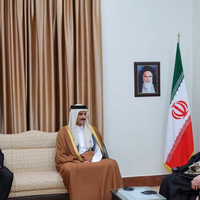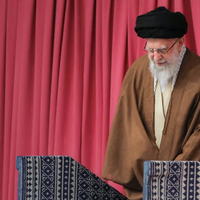“No candidate in this election or others can succeed without integrating AI,” Mohammadreza Ghasemi asserted in an interview with state-affiliated IRNA news on Thursday.
Although there are no reliable polls about the electorate's mood ahead of the June 28 snap election, the trend in the past three national elections in Iran has shown a declining turnout.
With the regime handpicking which candidates are allowed to run, a large segment of the public has lost interest in voting.
Ghasemi noted that countries like the US and Russia, amid their power struggles, employ AI tools to sway public opinion. “Managing public opinion is a crucial aspect of AI application,” he emphasized.
“AI in elections involves managing public opinion. Suppose we fail to coordinate the management of big data within social networks and influence algorithms shaped by society's general understanding”. In that case, the official added, “We will not succeed in the elections.”
He didn't elaborate on what he meant by "succeed in the election," but it likely refers to mobilizing voters for the upcoming snap elections. Following former president Ebrahim Raisi's death, the ruling establishment must re-engage an electorate disillusioned by recent elections.
Official statistics show that 40.6 percent of eligible voters participated in the first round of parliamentary elections on March 1. In Tehran, only 24 percent of the population voted, marking the lowest turnout in the Islamic Republic's history.
Even lower turnout was recorded in the recent run-off elections, with only seven percent of eligible voters in Tehran casting their ballots.
Ghasemi also pointed out that despite Iran’s "significant challenges with AI", the seminary's "robust capabilities that candidates should leverage". “Presidential candidates should harness the unique AI strengths of seminaries, which are key national players,” he stated.
"AI will significantly impact future global management and is a strategic, power-creating technology," the official added.
Ghasemi also urged candidates to reveal their AI strategies, stressing that the seminary, as a “proactive institution in AI technology,” will “hold them accountable.”
The seminary tech official predicted that the world will soon be divided into AI users and developers, reducing the relevance of geographical boundaries.
He also mentioned AI's drawbacks, particularly the spread of fake news, which he attributed to 30% of the protests in 2022.
“AI reflects real news, but it also plays a role in creating, distributing, and engineering fake news,” he added.
In 2022, the nationwide protests, known as Woman Life Freedom, sparked by Mahsa Amini's death in police custody, resulted in over 550 deaths and severe social crackdowns. Women and minorities continue to face severe persecution, with executions reaching record levels.
In March, the UN's fact-finding mission concluded that Amini's death in the custody of Iran's morality police was unlawful and caused by violence and that Iranian women still suffer systematic discrimination.
According to the fact-finding mission, there were extrajudicial executions, arbitrary arrests, torture, and ill-treatment, as well as rapes and sexual violence during the protests which followed.









